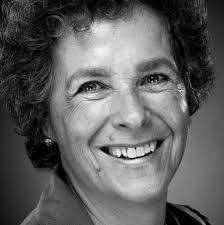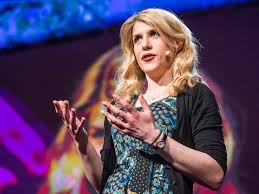
Jane Gotto
The practice of Humanistic Psychotherapy has gained significant recognition in recent decades. Having been a humanistic psychotherapist since the early 1990’s, Jane Gotto, Director of The Terrace, has noticed research and results have brought the humanistic approach – putting the person in the centre of the work – more mainstream. It is now challenging some of the more traditional ways of treating mental health, by working with the person not their symptoms. This piece links to a letter sent by Terry Cooper, Founder Director of Spectrum Therapy, in which he talks about Richard Bentall’s response to Stephen Fry’s programme exploring manic depression, as part of the BBC’s In the Mind series.
In Terry’s piece, published by Spectrum Therapy, (http://www.spectrumtherapy.co.uk/images/resources/ALL_IN_THE_BRAIN_COMP_DOC.pdf), Bentall asks Fry to portray the conditions he is so keen to demystify and destigmatise – bipolar disorder and schizophrenia – in a way that does not, as much current thinking seems to do, decontextualize the disorders. Are they, as Fry maintains, based on ‘bad luck’ or ‘genetics’, striking the especially vulnerable and becoming a lifelong condition only treatable by medication or are there more complex conditions at work?
As Terry Cooper stresses, “any degree of self- influence is empowering and generates hope” and “trying to fix people -remove symptoms- rather than provide time for them….. creates a premature closure of underlying problems.”.
Eleanor Longdon’s moving TED Talk ‘Voices in my head’ (http://www.ted.com/talks/eleanor_longden_the_voices_in_my_head?language=en) is as chilling as it is eloquent and moving. Her description of the way in which the medicalisation of her mental health issues created a downward spiral from which she was lucky to escape offers an alternative to the conventional twenty-first century psychiatric response and asks the question in the title, focusing not on what others have said is wrong with the client, but on how the client really feels.

Eleanor Longden
It takes in issues such as nurture versus nature. Do we look at a client’s response as a consequence of the pre-wiring of their genetic make-up? Or do we examine it as a result of external factors after conception? This includes environmental factors, life experience and the effect of learned responses.
Jane Gotto shares Bentall’s concerns that we should not be quick to assume that the hearing of voices is a dangerous medical condition only treatable by strong anti-psychotic drugs that, in their medical effects, mask the real problem rather than treat it.
‘I think it is important that, as professionals, we shift from looking at symptom based treatment to finding out about the person’s experience; who they are, what their story is, and how did they get to the place they are in?’
Jane Gotto works with a formative perspective, developing an understanding of what the person wants for themselves, and addressing what would make them feel better in their life.
There is evidence that a genetic component to mental ill-health is likely, but it is not easily identifiable and can blur the distinction between recognised conditions, such as bipolar, schizophrenia, ADHD and, as Bentall highlights, even Autism. He points out that many psychiatric patients are deeply dissatisfied with what medicine alone can do for them. Why, when other conditions such as cancer, are seeing improving survival rates, is recovery in those with mental illness just as elusive as it was fifty years ago?
Jane Gotto says “The fact that Eleanor was dealing with voices in her head was the symptom, and what was healing was the experience of being listened to by others. But fundamentally and importantly she learnt to listen to herself. That’s a hopeful outcome.”
We would love to hear your views on this complex subject.